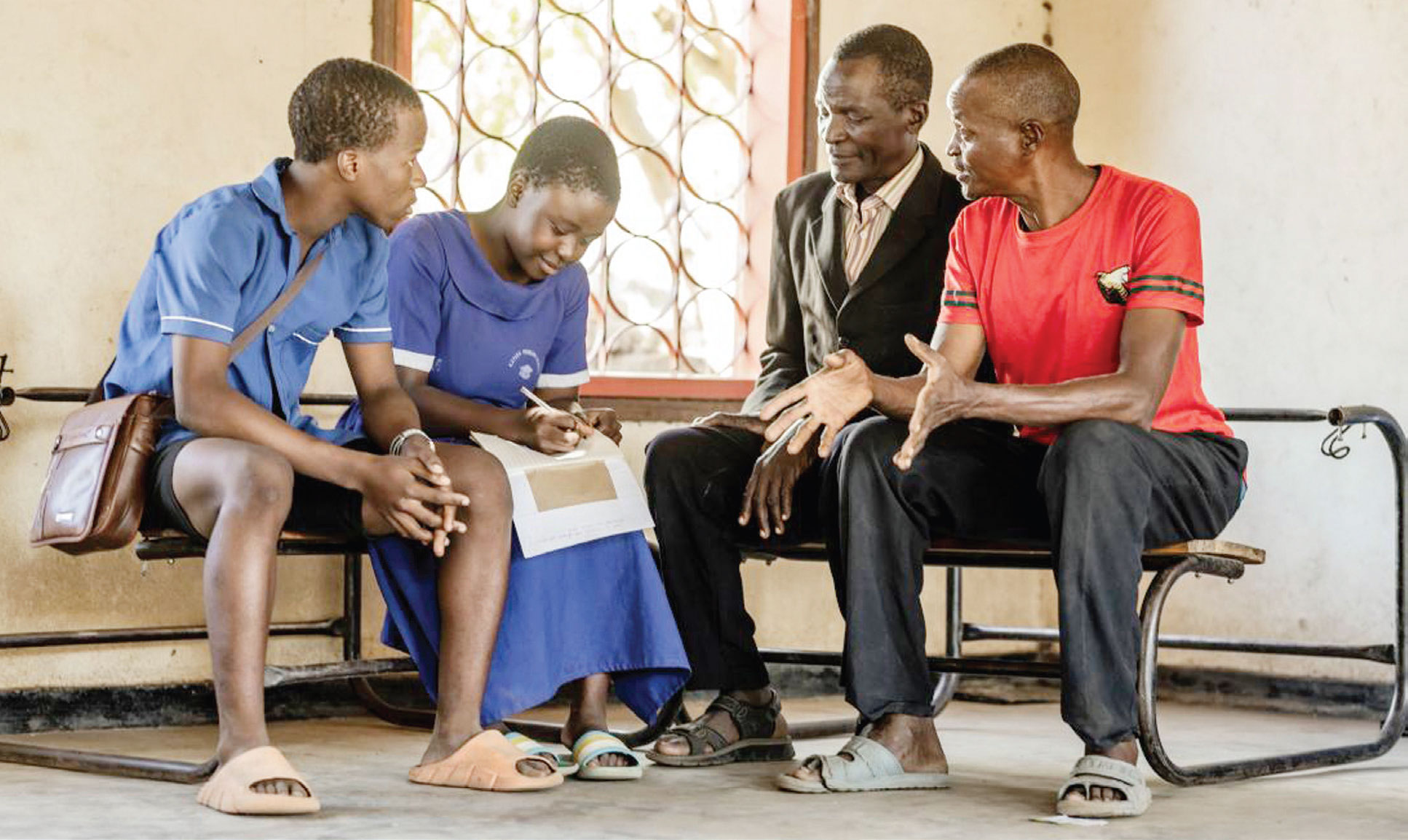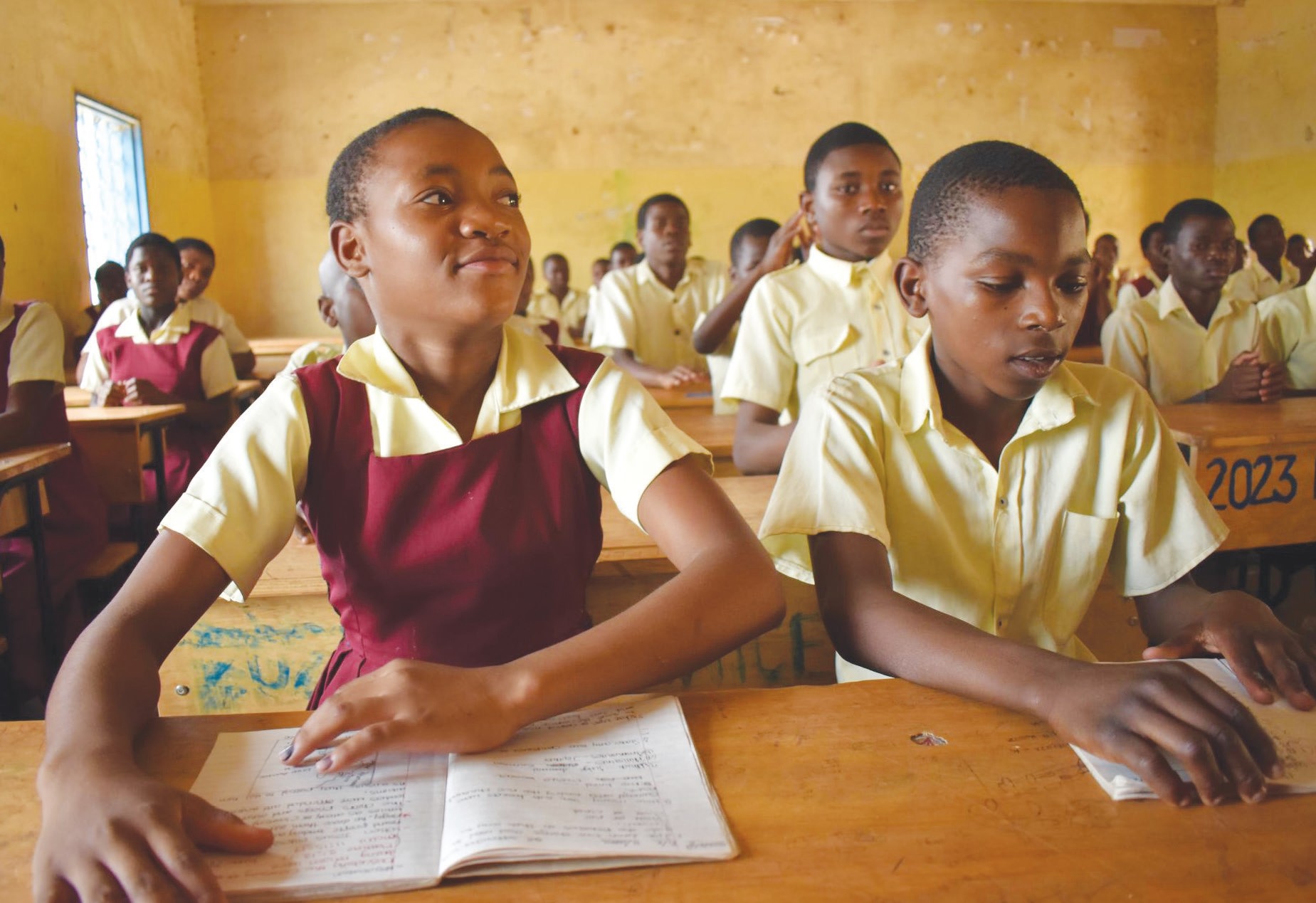Beyond literacy for knowledge
At the age of 25, James Mota of Namwera Village, Traditional Authority (T/A) Njema in Mulanje can hardly read or write. His three years of singing alphabet at Muloza Primary School did not make him literate.
Unlike hundreds of illiterate Malawians, who failed to attain education due to lack of school fees, James, according to his brother Charles, had an opportunity to pursue education because he enrolled when government had introduced free primary education system.

While the family believes James lost a lot by not going far with education, the third born in a family of four, believes in the opposite. He says education is not the only key to success. He is into entrepreneurship—he repairs radios.
“I am living happily and able to buy food for my family. How many literate people are working?” argues James.
It is evident through his reasoning and confidence that the success he claims to be realising is just a fraction of his potential. His wife Angela reveals that the husband has customers and is always busy, but says she hardly sees a valuable product of the husband’s busy days because due to illiteracy he fails to manage the returns.
“In 2013, he started selling cooking oil, but the business collapsed to our surprise because we did not see where the money went,” explains the outspoken wife who dropped out of school while in Standard Four to marry James.
James’s family may sound exceptional, but there are many families made up of illiterate members who do not know and care about the future and sustainability of the societies they are building. This is a greatest concern in today’s world. Scholars argue that a sustainable society is possible in a world with high literacy levels.
This is why during this year’s World Literacy Day celebrated today under the theme Literacy and Sustainable Societies, the global community will be discussing how to promote literacy for sustainable societies. Participants will reflect on education and literacy as conditions for lifelong learning and sustainable development.
Director General of Unesco, Irina Bokova in her message for the day says: “This is an opportunity to remember a simple truth: literacy not only changes lives, it saves them.”
Unesco reports that the country is stuck at an average of 62 percent, lower than other countries like Zimbabwe, which has a literacy rate of 92 percent. The national literacy rates stands at 67.3 percent for men and 76.5 for men.
Educationist Dr Steve Sharra argues that literacy has a direct bearing on the development of a society and its sustainability.
He brings into light issues of language, availability of literature and understanding of issues. He argues that in the absence of using local languages, which everyone understand, to be literate becomes a must to be relevant and contribute to national development.

Sharra cites countries such as China and America where the local language is the official language of instruction, saying they are well developed and this is the power of language over literacy.
“Everyone understands issues from a very young age, but where you need to deliver services in another language, you need to improve literacy levels of the people to follow the issues. This is Africa’s greatest problem and one of the reasons it is still poor,” explains Sharra.
Richmond Sikwese, a retired secondary school teacher and now an education consultant describes literacy and sustainable society as complementary. He argues that there is much literature around some of which cannot be communicated verbally. It needs everyone to know how to read and write and not only that, but also to count. He adds that with technology it is a must for everyone to know how to read and write. He says there are phones, computers and social media platform which have become agents of communication and sensitisation for development.
“You can do anything on phone. You can Google on the Internet to know how others are doing things and can ask any question. So, where a generation is illiterate, it means they are behind and cannot contribute to sustainability of the societies,” explains Sikwese.
He says there is a lot the country has to celebrate about, arguing although literacy levels have been poor, several efforts have improved it. He cites initiatives such as the adult literacy education and the Complementary Basic Education (CBE), which is the Ministry of Education programme that provides out-of-school children an opportunity to learn literacy and numerical skills needed to live as productive and health conscious citizens.
He adds that the adopted Education Act also promotes compulsory education which he says is a catalyst for ensuring that all children grow literate and educated.
Sikwese, however, warns government not to relax, saying there is need for an extra gear to ensure about 30 percent of illiterate population is literate. His position agrees with the findings of an ActionAid study on financing of adult literacy, which found that over the past 10 years a large number of countries, including Malawi have decreased their allocations to adult literacy both in real terms and as a percentage of the overall education budget.
BenedictoKondowe, Civil Society Coalition for Basic Education (Csec) also applauds the efforts taken by government, but bemoans the disparities and asks government to buckle up and bring more programmes that should reduce illiteracy levels more.
“If we want to be successful, we should ensure good training and attractive incentive for the volunteers who also happen to be the youth who teach in the CBE and adult literacy centres. Most of the learning centres have insufficient learning and teaching materials. We should improve and strive to a single digit of illiteracy rate,” explains Kondowe.





